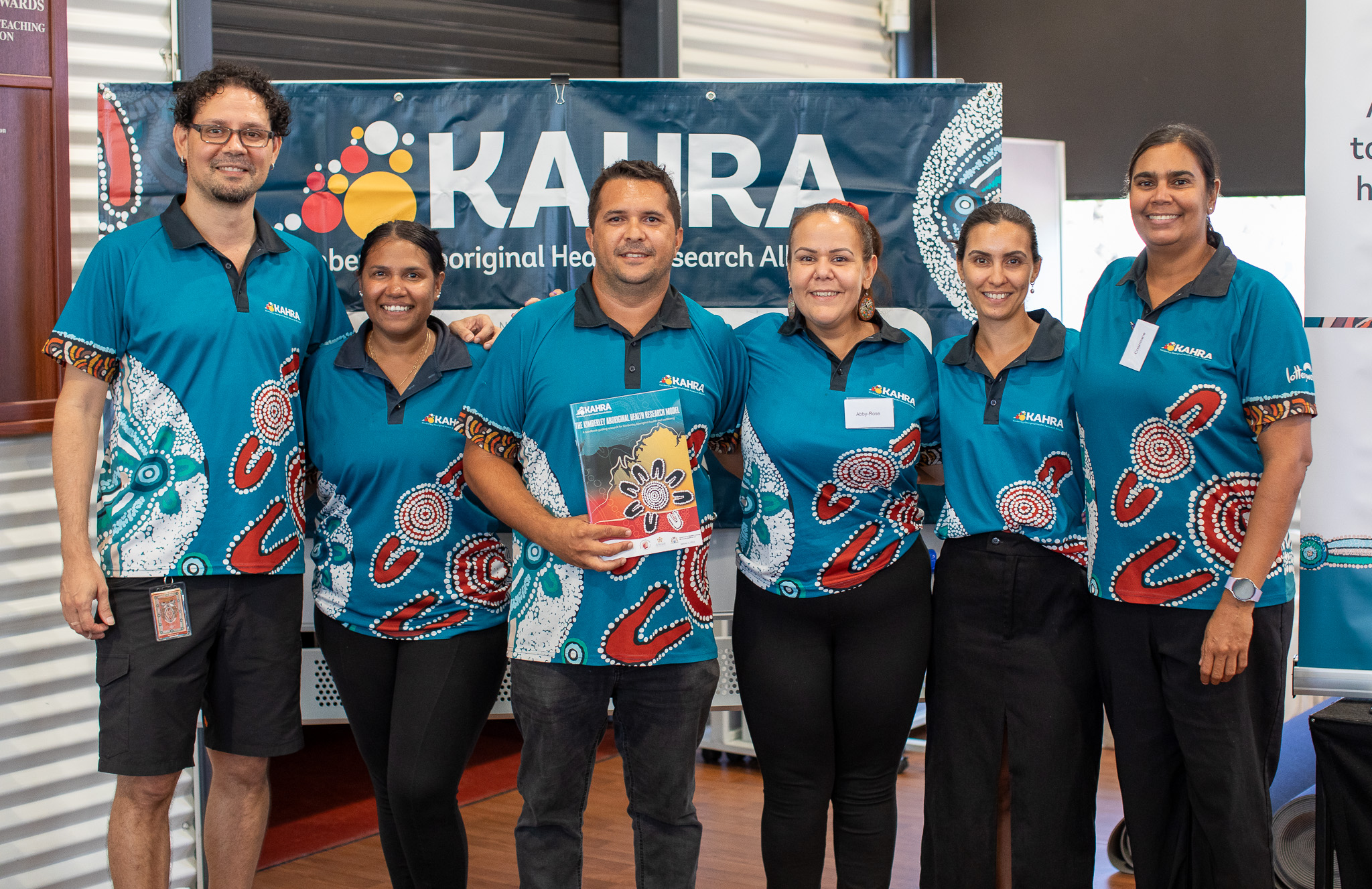The Kimberley Aboriginal Health Research Alliance (KAHRA) is proud to announce the launch of the Kimberley Aboriginal Health Research Model, a framework developed to guide Aboriginal health research and evaluation projects in the Kimberley region of Western Australia. This model, recently launched at the Annual KAHRA Forum in Broome, sets out the standards and expectations required for research in the region, ensuring that all research aligns with the needs and aspirations of Kimberley Aboriginal people.
KAHRA unites Kimberley health services, Aboriginal communities, and research organisations to address health challenges through culturally appropriate, evidence-based approaches. KAHRA was founded by Kimberley Aboriginal Medical Services (KAMS), WA Country Health Service, the Aboriginal Health Council of WA (AHCWA), The Kids Research Institute, Rural Clinical School of WA (University of WA), and the University of Notre Dame Australia (Broome Campus).
The Kimberley Aboriginal Health Research Model is designed to support Aboriginal health research initiated by Aboriginal communities and organisations, as well as projects led by external parties seeking collaboration with Aboriginal people in the Kimberley. This model ensures that research in the Kimberley addresses the priorities of local Aboriginal communities and fosters genuine relationships with research partners, with a focus on improving health outcomes.
Vicki O’Donnell, CEO of KAMS and KAHRA Board Member, emphasised the importance of the model:
“This model is another step forward to flip the old approach to Aboriginal health research in the Kimberley. It ensures that research is driven by Kimberley Aboriginal people, for Kimberley Aboriginal people. We are no longer just subjects of research—we are leading it. The model will help strengthen partnerships with communities and researchers to achieve real, positive outcomes for our people.”
The launch comes in response to concerns about the volume of Aboriginal health research conducted in the Kimberley, which often lacked clear benefit for local communities. The model provides a framework to ensure that research is done “the right way or not at all” and aims to build the capacity of local Aboriginal people to take a leading role in health research.
Amanda Collins-Clinch, Executive Manager Office of the CEO, highlighted the value of the collaborative approach:
“This research model reflects the collective desire of Kimberley Aboriginal people to lead and control health research across the Kimberley region. It’s about setting the standards for how research should be done—centred on respect, trust, and a genuine partnership with communities.”
The model is expected to create stronger partnerships, build local Aboriginal health research capability, and ensure that health research in the Kimberley leads to meaningful, positive impacts for Aboriginal communities.
The Annual KAHRA Forum, themed “Aboriginal People Leading Aboriginal Research and Evaluation,” brought together representatives from across the region and the state to discuss key themes such as community engagement, data sovereignty, and the importance of Aboriginal leadership in health research. The event received overwhelmingly positive feedback, with attendees praising the valuable networking opportunities and robust discussions.
KAHRA looks forward to working closely with Kimberley Aboriginal communities and organisations to ensure the successful implementation of the Kimberley Aboriginal Health Research Model, which will guide future research efforts and contribute to improved health outcomes in the region.
The Kimberley Aboriginal Health Research Model can be accessed online here.

